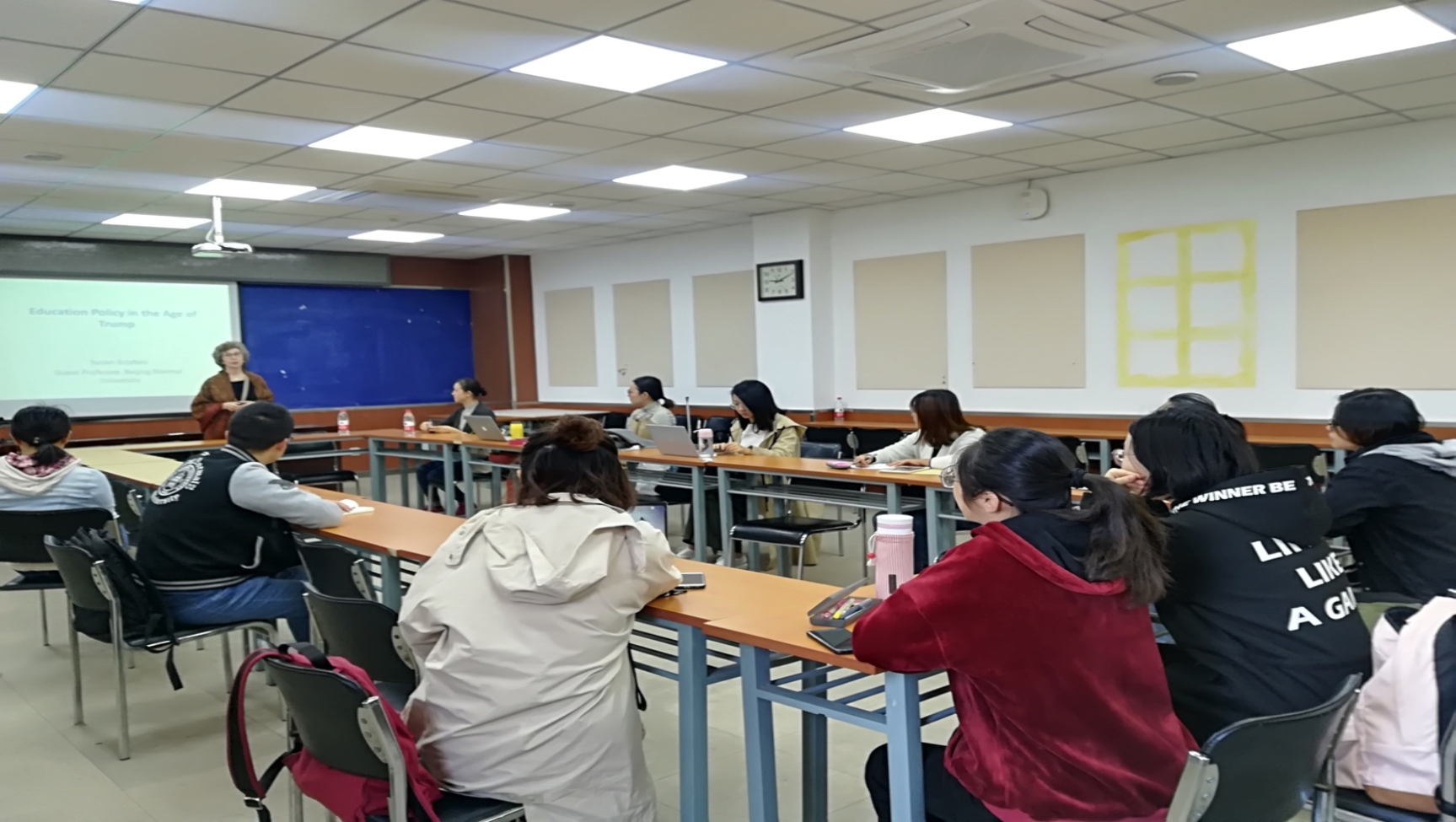On October 18, 2018, Dr. Susan Sclafani, former US Assistant Secretary of Education, delivered a lecture entitled “Education Policy in the Age of Trump” for IICE’s International Education Podium. The lecture was chaired by IICE Associate Professor TENG Jun and attended by faculty members and graduate students from the IICE.
Before talking about educational policies of Trump administration, Dr. Sclafani firstly analyzed the difference between Every Student Succeeds Act (ESSA) and No Child Left Behind (NCLB) that were issued in previous US administrations. She pointed out that Every Student Succeeds Act emphasized more on the broad concept of student holistic success, not only in mathematics but in reading and science as well with a deeper commitment to reducing the achievement gaps. ESSA granted more autonomy to schools to establish their own educational systems rather than merely following instructions from the government. Moreover, ESSA allowed diverse means of assessments to measure students’ learning outcomes rather than merely standardized tests as employed in NCLB.
Next, Dr. Sclafani elaborated upon educational policies during the age of Trump administration. She noted that there were innate links between NCLB and ESSA despite relevant differences, but Trump administration attempted to deny every possible educational policy inherited from the previous administrations. In basic education, policies in the era of Trump prioritized parents’ choices by establishing family engagement team, heavily subsidized charter schools and tax credits for private schools, and widely promoted school vouchers for educational marketization.
In her response to students’ questions on teacher education policies in US after the lecture, Dr. Sclafani explained that teacher training was organized at state level at most, but was mostly implemented at school level as well. Training was conducted in various manifestations such as senior teachers mentoring new teachers, and training topics usually covered student management, curriculum design, learning outcome assessment and so forth. Dr. Sclafani especially noted that while US put much emphasis on cultivating 21st century skills for students, whether teachers possessed such skills remains a question deserving special attention and training. But she stated that parents’ focus on their children’s holistic development such as in academics, extra-curricular activities, social emotions, interest and hobbies remained a proud core to underpin the personal development of students despite the policy changes involved.
In the discussion session, Prof. TENG Jun added in a comparative perspective that the differences in ideas between Chinese and American people can are manifest in their perceptions of education. Traditionally, Chinese people, Prof. Teng noted, believed that diligence is the means by which one makes up for one's dullness, so most Chinese parents would like their children to work hard. But American people believed different students had different talents and thus parents usually did not force their children to develop areas that they were not into. But the two countries have been keeping adjusting themselves through mutual learning, with increasing number of Chinese parents beginning to value the holistic development of their children and more American parents increasingly valuing their children’s academic achievements.
Dr. Sclafani also served as director of state services at the US National Center on Education and the Economy, and she was also the U.S. representative to both the Organization for Economic Co-operation and Development (OECD) and Asia-Pacific Economic Cooperation (APEC). She has continued her international education work as well as her work in improving K–12 educational systems, STEM education at local, state, and national levels in recent years.

